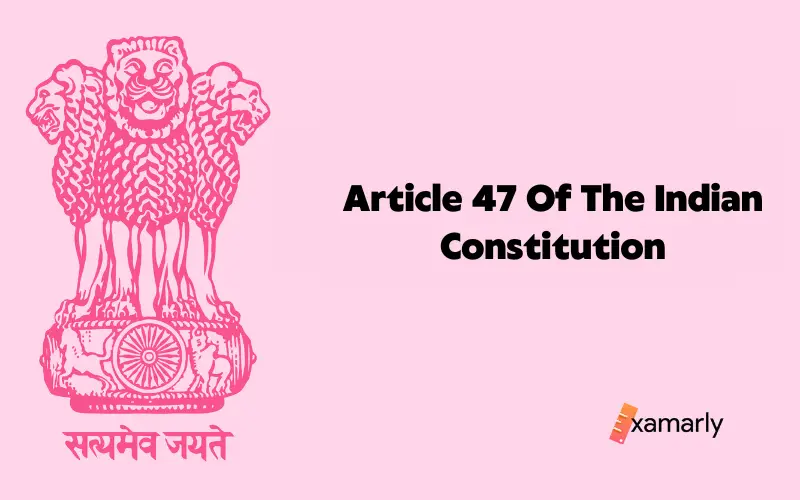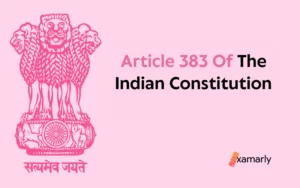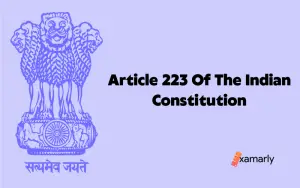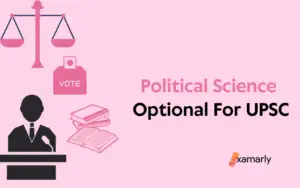- India is a diverse nation with people coming together who are belonging to a plethora of classes, castes, religions, etc. which shapes the Indian society. The Indian Constitution protects the fundamental rights of these diverse groups of people within our nation. Every prospective is touched upon by a specific article of the Constitution of India.
- Article 47 of the Constitution of India is an article as part of the Directive Principles of State Policy. It defines the duties of the State toward the level of nutrition, the standard of living, public health, and limiting access to liquor.
- Let us now gain an in-depth understanding of Article 47 of the Constitution of India.
Article 47 Of The Indian Constitution: Upholding The Health And Wellbeing Of Citizens
- Article 47 of the Indian Constitution reads, ” 47. Duty of the State to raise the level of nutrition and the standard of living and to improve public health. The State shall regard the raising of the level of nutrition and the standard of living of its people and the improvement of public health as among its primary duties and, in particular, the State shall endeavour to bring about prohibition of the consumption except for medicinal purposes of intoxicating drinks and of drugs which are injurious to health.”
- In simple terms, it renders specific primary duties to the State. This comprises raising the level of nutrition, promoting a good standard of living, and improving public health.
- In addition to the above-mentioned duties, the State shall also have to take the initiative of prohibiting intoxicating drinks and drugs which pose a threat to health. The only exception is the consumption of intoxicating drinks or drugs for medicinal use.
- This article follows Socialist and Gandhian principles.
- Other duties of the State includes securing the needs of the daily lives of citizens such as maternity benefits, elderly care, proper working conditions, and justice protection.
Public Health
- The main goal of this article is to promote public health. The right to health is now viewed as a fundamental right for every Indian citizen. The government should take the necessary actions to raise the level of living, end child labor and eradicate poverty. Besides that, it should take measures to improve the standard of life for women in society.
- In the case of Vincent Panikurlangara v. Union of India, the court expressed the opinion that public health should be given more attention. This is because it is one of the key elements in the development and progress of society as well as in the development of the country.
- According to the Ratlam Municipal Corporation v. Vardichand case, the state must guarantee that people have a high standard of living. It may therefore take legal action against any government or authority that fails to uphold public health and standard of living despite having the necessary financial resources to do so.
Standard Of Living
Drugs can be both helpful and harmful, depending entirely on the dosage and frequency. Therefore, claiming that a drug is harmful without thoroughly researching it will be unclear.
Liquor: Consumption And Trade
- The prohibition of alcohol was able to find a place in the Constitution. This was due to the puritanical mindset that predominated the constituent assembly. The Supreme Court has not expressed a consistent opinion on whether the right to trade in alcohol is a fundamental right.
- By using this authority, the Bihar government adopted a policy that sought to outright put a ban on liquor. Any home that had alcohol on its property might be jailed for it. After a mishap that caused a health hazard and resulted in 16 fatalities, this policy was released. The Patna High Court, however, overturned the same because it was ambiguous and misguided.
- In India, the control of the liquor markets is handled only by the state governments. It is well recognized to be one of the industries in the nation that generates the biggest amounts of revenue. This makes it one of the most severe social vices.
Related – Alcohol prohibition in India
Article 47: Relation With The Directive Principles of State Policy
- The Indian Constitution specifies a set of rules for the administration to adhere to. These are known as the Directive Principles of State Policy and are contained in Article 47.
- These ideals are intended to advance democracy and secularism. They also ensure that social justice and economic justice are being maintained in society. The government uses these ideas as a guide for creating relevant programmes and initiatives. The motive is to work for the betterment of society and the lives of all citizens.
Key Directives Of Article 47
Some of the key directives of Article 47 have been listed below:
- The restriction against intoxicating drinks and drugs.
- Raising awareness among all the people for leading a healthy life.
- Working for the improvement of nutrition levels as well as the standard of living.
Although Article 47 promotes a healthy lifestyle and the prohibition of intoxicating substances, it has received a lot of backlash from the citizens. It has become a matter of debate.
The responsibility to fulfill and stay true to all the directives falls on the government. The courts can step in anytime to ensure that the Directive Principles are being upheld. However, the point to be noted is that the Directive Principles are not enforceable by law.
You Might Also Like – Article 46 Of The Indian Constitution
Impacts Of Article 47
- Article 47 under Directive Principles of State Policy is for the betterment of the citizens of the nation.
- A whole industry depends on manufacturing, sales, and production of liquor which was affected by the liquor ban policy. The Supreme Court ultimately changed its notification. This was in response to the cause of the traders’ losses in the context of liquor trade. The revision limited the ban to only 220 meters and exempted states with populations under 20,000. Some of these states were Himachal Pradesh, Sikkim, and Meghalaya.
- It demands the prohibition of intoxicating drinks and drugs. This gave rise to a conflict of interest among citizens as a ban on alcohol could be used to infringe on the religious rights of Adivasis. In their culture, there is a religious significance attached to the consumption of rice beer. This provision has attracted controversies and debates around it.
The Ambiguity Of Article 47
- The Supreme Court in the case State of Tamil Nadu v. K. Balu ordered the ban of liquor for 500 meters on state and national highways. This drew criticism for judicial overreach. Article 47 is a Directive Principle. Hence, it is up to the current government’s direction and discretion.
- Given that the state had the authority, the Supreme Court’s use of that authority went against the idea of the separation of powers.
- According to several well-known jurists, especially in light of the numerous disputes and conflicts involving judicial overreach, Article 47 is regarded as being unconstitutional. In their opinion, it violates the fundamental right to liberty. Therefore, they deem this constitutional provision as conservative and debatable.
Summing Up
- The Indian government has established a set of principles known as the Directive Principles of State Policy. These principles assist in directing the nation’s social and economic development.
- Even though they are not legally obligatory, they provide guidelines for authorities to adhere to as India seeks to become a more just and thriving country.
- Article 47 of the Indian Constitution strives to make the citizens of our country lead a healthy life by raising awareness about the required levels of nutrition and providing a decent standard of living while ensuring absolute prohibition of consumption of intoxicating substances by imposing a ban on them.
- The article is thought to be ambiguous and illiberal by some jurists as it involves judicial overreach. It is highly debatable.
FAQs
Why is November 24, 1948, important with respect to Article 47 of the Indian Constitution?
Draft Article 38 was adopted on November 24, 1948, which officially came to be known as Article 47 of the Indian Constitution later on.
When was Draft Article 38 (Article 47) debated on?
Draft Article 38 (Article 47) was debated for two days. The dates were November 23, 1948, and November 24, 1948.






